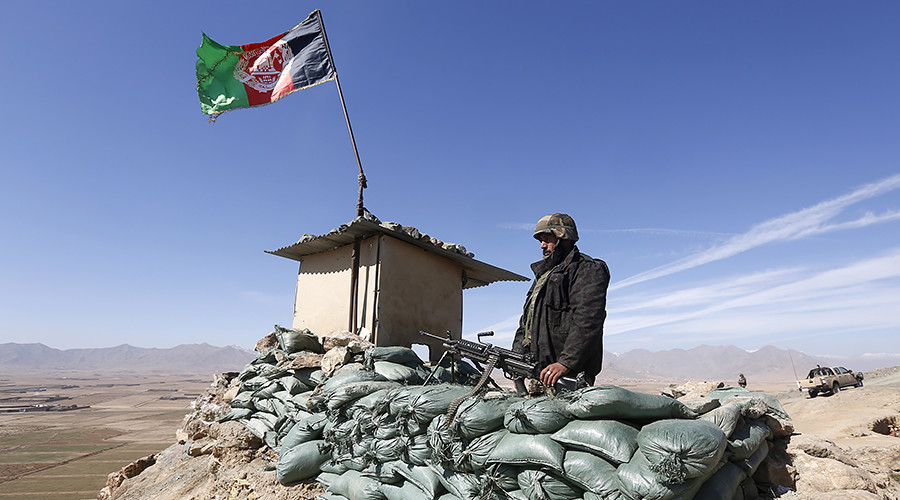‘Narrow grounds’: US wants to cooperate with Russia on Afghanistan – Moscow

Washington says it want to cooperate with Moscow on Afghanistan, but US sanctions policy narrows down the areas of possible cooperation, unless those are lifted, Russia’s special representative for Afghanistan said after meeting with his US counterpart.
Alice Wells, US Special Representative for Afghanistan and Pakistan, expressed Washington’s “willingness to cooperate with us on Afghanistan, while realizing that the area of cooperation is very narrow,” Zamir Kabulov told Russian media after his meeting with Wells on Wednesday on the sidelines of the UN General Assembly in New York. The Russian official did not elaborate where that narrow cooperation may lie.
Kabulov pointed out that Afghanistan is one of a few areas where there is a room for “relatively pain-free” cooperation between Moscow and Washington. At the same time, he noted that anti-Russia sanctions limit opportunities for mutual work on pressing international issues.
“[Wells] understands that there are sanctions, but it was they who introduced them,” Kabulov said. “You introduced them, then you are to lift them, if you want to cooperate with us,” Kabulov said, as cited by RIA Novosti.
He also told reporters that Russia may begin to sell Mi-35 attack helicopters to the Afghan government.
“[The Afghan government] asked, we offered on commercial basis, for money. We are ready [to supply the helicopters],”Kabulov said.
The Pentagon has spent $76 billion on weapons and equipment for the Afghan army and police since 2001, according to the US Government Accountability Office (GAO).
Overall, the US is estimated to have spent over $700 billion of US taxpayer money on military assistance, reconstruction and economic aid to Afghanistan throughout the 16-year war, which began as Washington’s response to Afghanistan’s harboring of Al-Qaeda after the 9/11 terrorist attacks and then morphed into a fight against the local Taliban to prevent them from regaining power.
Throughout the years, Russia has allowed the US to use its territory and airspace to deliver supplies to American troops in Afghanistan.
Moscow, however, criticized the Trump administration’s plan to send additional troops to Afghanistan, calling it a “dead-end approach.”
Peace talks with Taliban is one major sour point of the Afghan conflict that the expanding US-led campaign in Afghanistan hinders.
Russian Foreign Minister Sergey Lavrov noted earlier in September that the UN Security Council, with the approval of Afghanistan’s government, ruled to allow the Taliban to enter peace talks under conditions that include severing terrorist links, bringing armed resistance to an end, and respecting Afghanistan’s constitution.
US Secretary of State Rex Tillerson has said that Washington stands ready to “support peace talks between the Afghan government and the Taliban without preconditions.”
But in August, Trump announced his administration’s new strategy, saying Americans troops are in Afghanistan to win the war and that there is no timetable for US withdrawal from the country.
After an “effective military effort, perhaps it will be possible to have a political settlement that includes elements of the Taliban in Afghanistan,” Trump said.
After an “effective military effort, perhaps it will be possible to have a political settlement that includes elements of the Taliban in Afghanistan,” Trump said.
Moscow also repeatedly complained about the US failure to curb Afghanistan’s growing opium production, which now supplies over 90 percent of heroin in the world.
Estimated opium production in Afghanistan has increased nearly 25 times since 2001, reaching 4,800 tons last year, the UN said.



0 Comments:
Post a Comment
Subscribe to Post Comments [Atom]
<< Home